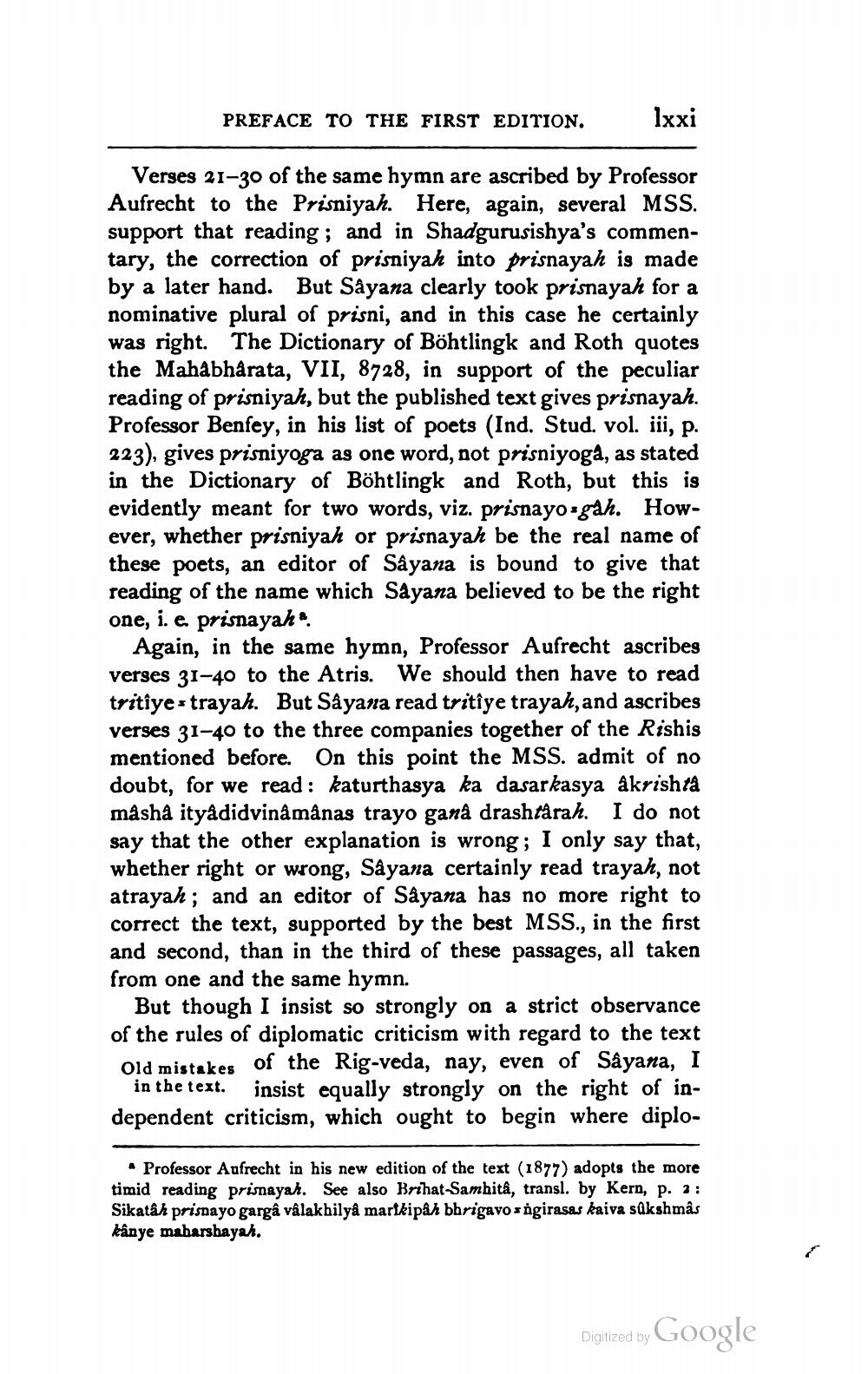________________
PREFACE TO THE FIRST EDITION.
Ixxi
Verses 21-30 of the same hymn are ascribed by Professor Aufrecht to the Prisniyah. Here, again, several MSS. support that reading; and in Shadgurusishya's commentary, the correction of prisniyah into prisnayah is made by a later hand. But Såyana clearly took prisnayah for a nominative plural of prisni, and in this case he certainly was right. The Dictionary of Böhtlingk and Roth quotes the Mahabharata, VII, 8728, in support of the peculiar reading of prisniyah, but the published text gives prisnayah. Professor Benfey, in his list of poets (Ind. Stud. vol. iii, p. 223), gives prisniyoga as one word, not prisniyoga, as stated in the Dictionary of Böhtlingk and Roth, but this is evidently meant for two words, viz. prisnayosgah. However, whether prisniyah or prisnayah be the real name of these poets, an editor of Sâyana is bound to give that reading of the name which Sayana believed to be the right one, i.e. prisnayah
Again, in the same hymn, Professor Aufrecht ascribes verses 31-40 to the Atris. We should then have to read tritiyes trayah. But Sayana read tritîye trayah, and ascribes verses 31-40 to the three companies together of the Rishis mentioned before. On this point the MSS. admit of no doubt, for we read : katurthasya ka dasarkasya akrishtå masha ityadidvinâmånas trayo ganå drashtàrah. I do not say that the other explanation is wrong; I only say that, whether right or wrong, Sayana certainly read trayah, not atrayah; and an editor of Sâyana has no more right to correct the text, supported by the best MSS., in the first and second, than in the third of these passages, all taken from one and the same hymn.
But though I insist so strongly on a strict observance of the rules of diplomatic criticism with regard to the text Old mistakes of the Rig-veda, nay, even of Sâyana, I
insist equally strongly on the right of independent criticism, which ought to begin where diplo
* Professor Aufrecht in his new edition of the text (1877) adopts the more timid reading prisnayah. See also Brihat-Samhita, transl. by Kern, p. 2: Sikatäh prisnayo gargâ valakbilya marikipar bhrigavo sngirasas kaiva sakshmas kanye mabarskayah.
Digized by Google




